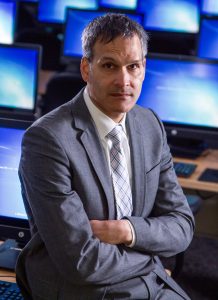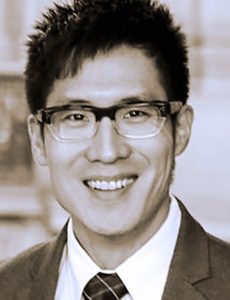By Stan Paul

John Villasenor
John Villasenor, professor of public policy at the UCLA Luskin School of Public Affairs, told a U.S. Senate committee that Congress might want to consider a deliberate approach to any attempts to legislate the use of unmanned aircraft.
He testified on March 15, 2017, before the full U.S. Senate Committee on Commerce, Science & Transportation chaired by U.S. Senator John Thune (R-SD), on issues related to unmanned aircraft in the national airspace system.
Villasenor, who also holds UCLA faculty appointments in engineering, management and law, was among a group of witnesses who were representing government and industry interests. The witnesses included the director of the Federal Aviation Administration’s Office of Unmanned Aircraft Systems.
Members of the Senate committee were briefed on a wide range of issues that will affect the emerging technology as legislation catches up with innovations to and applications for the hundreds of thousands of unmanned aircraft systems — commonly known as drones — already in in the hands of individuals, commercial interests and government agencies.
Focusing on privacy aspects of drones, Villasenor cautioned the committee that while unmanned aircraft can potentially be used to gather information in ways that violate privacy, this does not mean that new federal unmanned aircraft privacy legislation is immediately needed or should quickly be put in place.
“Rather, the key question is: Do unmanned aircraft put privacy at risk in ways that fall outside the scope of existing constitutional, statutory and common law privacy protections?” asked Villasenor. “There are good reasons to believe that the answer to that question is ‘no.’ As a result, I think it is premature to enact broad new federal legislation specifically directed to unmanned aircraft privacy.”
He further explained that while limiting unmanned aircraft in obtaining and using information, “It is far harder to do so in a manner that is consistent with the full scope of the First Amendment.” At the same time, he commented that unintended consequences of legislation are especially heightened in areas where rapidly changing technology and privacy intersect, such as autonomous vehicles, location-aware smartphone applications and “always-on” devices with audio and video capabilities.
Other witnesses testified about the variety of issues to be considered, including limiting drone technology for use in agriculture, air traffic safety, infrastructure inspection and protection, and as critical tools in saving lives in natural disasters and search and rescue efforts.
Villasenor, while recommending restraint, concluded the hearing by stressing that Congress still has a vital role in addressing the challenges of emerging technologies. He urged dialogue among lawmakers, regulators, consumers, the commercial sector and civil liberties groups, so all parties can gain a better understanding of the issues.
“Part of that role involves identifying where existing legal frameworks are working well and where they are falling short,” Villasenor said. “Part of that role involves knowing when not to legislate. And part of that role involves enacting carefully targeted legislation at the right time.”
After his appearance before the Senate panel, Villasenor said he was grateful to have the opportunity to testify.
“Congressional hearings provide a very important opportunity to contribute to the dialog regarding today’s complex policy questions,” he said. “I appreciated the chance to testify before the Senate Commerce Committee on the privacy challenges being raised by rapidly changing technologies.”
In addition to the archived webcast, the full written testimony of Villasenor and the other witnesses may be found online.
 An analysis of the potential impact of a proposed amendment to the American Health Care Act of 2017, known as the Graham-Cassidy plan, found that the now-abandoned proposal could have triggered the near-term collapse of California’s individual health insurance market. The analysis, developed by John Bertko, chief actuary for Covered California, and UCLA Luskin’s
An analysis of the potential impact of a proposed amendment to the American Health Care Act of 2017, known as the Graham-Cassidy plan, found that the now-abandoned proposal could have triggered the near-term collapse of California’s individual health insurance market. The analysis, developed by John Bertko, chief actuary for Covered California, and UCLA Luskin’s 
